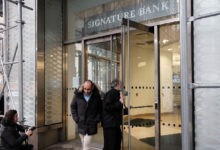3 Reasons Why 3 Arrows Capital Failed, Per Its Founders

There were at least three major factors that lead to the collapse of the fund, according to the founders of Three Arrows Capital (3AC) Su Zhu and Kyle Davies.
After five weeks in hiding, stating that they’ve gotten death threats, the founders spoke to Bloomberg, which described the duo as “at times contrite and at times defensive,” and made a note of their “efforts […] to deflect blame.”
‘The nails in the 3AC coffin’
The founders identified three major causes that lead to 3AC’s fall:
- the investment in LUNA and personal closeness to Terra’s founder,
- the crashing bitcoin (BTC) price,
- and the Grayscale Bitcoin Trust (GBTC) trades.
Davies and Zhu acknowledged heavy losses related to trades in Terra’s LUNA and the failed algorithmic stablecoin TerraUSD, claiming that,
“What we failed to realize was that Luna was capable of falling to effective zero in a matter of days and that this would catalyze a credit squeeze across the industry that would put significant pressure on all of our illiquid positions,” Zhu said.
Also, per him, the firm may have been too close to Terra’s founder, Do Kwon.
The fund was then able to continue borrowing from large digital-asset lenders and wealthy investors, with Zhu claiming that lenders were “comfortable” with 3AC’s financial situation, and that they allowed them to keep trading “as if nothing was wrong” – but many of these loans had required a very small amount of collateral, said Bloomberg, citing court documents.
After the company “continued to do business as usual,” said Zhu,
“Bitcoin went from [USD] 30,000 to [USD] 20,000, you know, that, that was extremely painful for us. And that was in, that ended up being kind of the nail in the coffin.”
Lastly, digital asset giant Grayscaleentered the mix. The company allowed big investors like 3AC to purchase shares directly by giving BTC to the trust, and these could then sell the shares to the secondary market. Bloomberg noted that, at the time of 3AC’s last filing at the end of 2020, it was the largest GBTC holder, with a position worth USD 1bn.
But the shares bought directly from Grayscale were locked up for six months at a time, and due to stiffer competition, GBTC’s price started slipping in 2021, until a share was increasingly worth less than the BTC backing it (called ‘discount’). Therefore, the so-called GBTC arbitrage trade stopped working.
‘Deep loss’
The founders denied pulling money out of the company, claiming that they suffered “deep loss.”
“People may call us stupid. They may call us stupid or delusional. And, I’ll accept that. Maybe,” Zhu was quoted as saying. “But they’re gonna, you know, say that I absconded funds during the last period, where I actually put more of my personal money back in. That’s not true.”
They also commented on the claims that a USD 50m payment was put down on a yacht before the company’s collapse, with Zhu saying that the boat was bought “over a year ago,” that they do not live an extravagant lifestyle, and that these accusations are a part of a smear campaign that comes with these negative events.
In either case, creditors of the fund claim that they’re owed more than USD 2.8bn in unsecured claims – a number which is expected to “rise significantly.” Liquidators overseeing the company’s insolvency have gained control of assets worth at least USD 40m to date. The two founders, however, claim that they’ve been in communication with the advisers in charge of the company liquidation “from day one,” contrary to what the advisers said.
____






 Bitcoin
Bitcoin  Ethereum
Ethereum  Tether
Tether  USDC
USDC  TRON
TRON  Dogecoin
Dogecoin  Cardano
Cardano  Bitcoin Cash
Bitcoin Cash  Chainlink
Chainlink  Monero
Monero  LEO Token
LEO Token  Stellar
Stellar  Zcash
Zcash  Litecoin
Litecoin  Hedera
Hedera  Dai
Dai  Cronos
Cronos  Tether Gold
Tether Gold  OKB
OKB  Ethereum Classic
Ethereum Classic  KuCoin
KuCoin  Gate
Gate  Algorand
Algorand  Cosmos Hub
Cosmos Hub  VeChain
VeChain  TrueUSD
TrueUSD  Dash
Dash  Tezos
Tezos  Stacks
Stacks  IOTA
IOTA  Basic Attention
Basic Attention  Theta Network
Theta Network  NEO
NEO  Decred
Decred  Synthetix
Synthetix  Qtum
Qtum  Ravencoin
Ravencoin  DigiByte
DigiByte  0x Protocol
0x Protocol  Nano
Nano  Zilliqa
Zilliqa  Siacoin
Siacoin  Numeraire
Numeraire  Waves
Waves  BUSD
BUSD  Status
Status  Pax Dollar
Pax Dollar  Enjin Coin
Enjin Coin  Ontology
Ontology  Hive
Hive  Lisk
Lisk  Steem
Steem  Huobi
Huobi  OMG Network
OMG Network  NEM
NEM  Bitcoin Gold
Bitcoin Gold  Augur
Augur  Ren
Ren  HUSD
HUSD